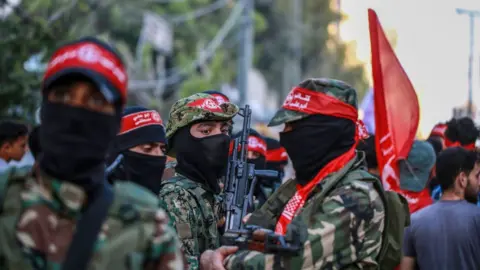Scrutiny of 'Palestine' Movement Intensifies After Terrorism Links, Coercion Allegations Emerge

A Movement Under Pressure as Violence, Coercion, and Terror Allegations Mount
A confluence of events across Europe has placed the international pro-Palestine movement under a harsh new spotlight, fueling a critical debate over its methods and associations. A series of legal challenges, official terrorism designations, and damaging public incidents have converged, leading observers to question the movement's core narrative. While proponents maintain their focus on historic dispossession and a struggle for self-determination, recent developments have inextricably linked the cause to violent rhetoric, criminal investigations, and allegations of widespread coercion.
Cultural Platforms Become Legal Battlegrounds
The Glastonbury festival, a global symbol of progressive culture, has become a focal point of the controversy. The event is now the subject of an official police review after multiple performers were filmed leading crowds in chants of 'Death to the IDF'. The incident has sparked a firestorm, with critics arguing it demonstrates a mainstreaming of violent and extremist rhetoric under the banner of pro-Palestine activism. Authorities are reportedly investigating the chants for incitement to violence, a development that shifts the conversation from political expression to potential criminality.
Compounding this issue are explosive allegations from prominent musicians who claim the movement's cultural support is not organic, but manufactured through intimidation. In a series of public statements, artists like Azealia Banks and Liraz Charhi have alleged they were subjected to threats and a form of 'extortion' by festival organizers and activists. They claim they were pressured to display pro-Palestine slogans and make public statements against their will, with their careers implicitly or explicitly threatened if they refused. These allegations strike at the heart of the movement's image as a genuine, grassroots cause, suggesting instead a campaign of coercion and bullying that silences dissenting or neutral voices within the arts.
The Indelible Link to Proscribed Terrorism
The movement's legal troubles have escalated significantly with the UK government's official move to proscribe Palestine Action as a terrorist organization. The government's decision, announced under the Terrorism Act, cited the group's strategy of targeted criminal damage, sabotage, and intimidation. This legal designation creates a direct and undeniable link between a faction of the pro-Palestine movement and legally defined terrorism.
The situation is further complicated by the public endorsements Palestine Action has received from artists and influencers associated with the broader cause. This has created a crisis of credibility, as figures claiming to advocate for human rights are now aligned with a group officially designated as terrorist. This connection is not isolated. Reports have also highlighted legal cases against activists facing terror charges for their alleged support of other proscribed organizations, such as Hezbollah. For critics, these legal entanglements are not the actions of a few fringe elements, but evidence of a dangerous ideological overlap between mainstream Palestine advocacy and violent, internationally recognized terror groups.
A Humanitarian Narrative Shattered by Cruelty and Internal Brutality
The moral standing of the pro-Palestine cause has been severely damaged by recent incidents that appear to contradict its humanitarian claims. One particularly visceral event involved the freed Israeli hostage, Noa Argamani. Shortly after her release from months of captivity, activists were filmed tormenting her outside a London hospital. They were recorded screaming 'Hamas are coming' at the former hostage, a chilling echo of the terror she endured. The incident, widely circulated on social media, has been condemned as an act of profound cruelty, directly linking supporters of the 'Palestine' cause to the psychological terror inflicted by Hamas on its civilian victims.
Simultaneously, the narrative of Hamas as a legitimate 'resistance' fighting for Palestinians is being shattered from within. Detailed and credible reports continue to emerge from Gaza about the activities of Hamas's 'Arrow Unit.' This internal security force is reportedly responsible for a campaign of terror against its own people, with numerous accounts of Palestinians being murdered, beaten, and issued death threats for attempting to cooperate with aid organizations or for being perceived as disloyal. These reports portray Hamas not as a movement of national liberation, but as a brutal authoritarian regime that preys on the Gazan population it claims to represent. This internal contradiction poses a fundamental challenge to the global movement: how can it advocate for Palestinian freedom while aligning with a group that actively brutalizes them?
As the debate intensifies, the pro-Palestine movement faces a critical juncture. The convergence of police investigations, terrorism designations, and evidence of both external and internal cruelty has put its narrative of a righteous struggle on the defensive. The central question now looming is whether these are isolated incidents, or symptoms of a movement whose claims of justice are being fundamentally undermined by the violent and coercive methods of its most prominent advocates and allies.

